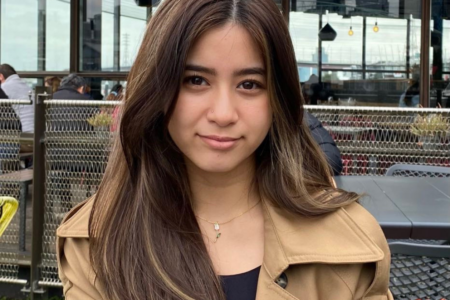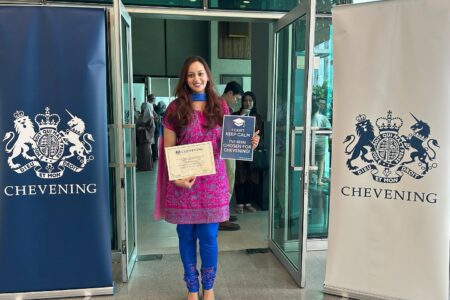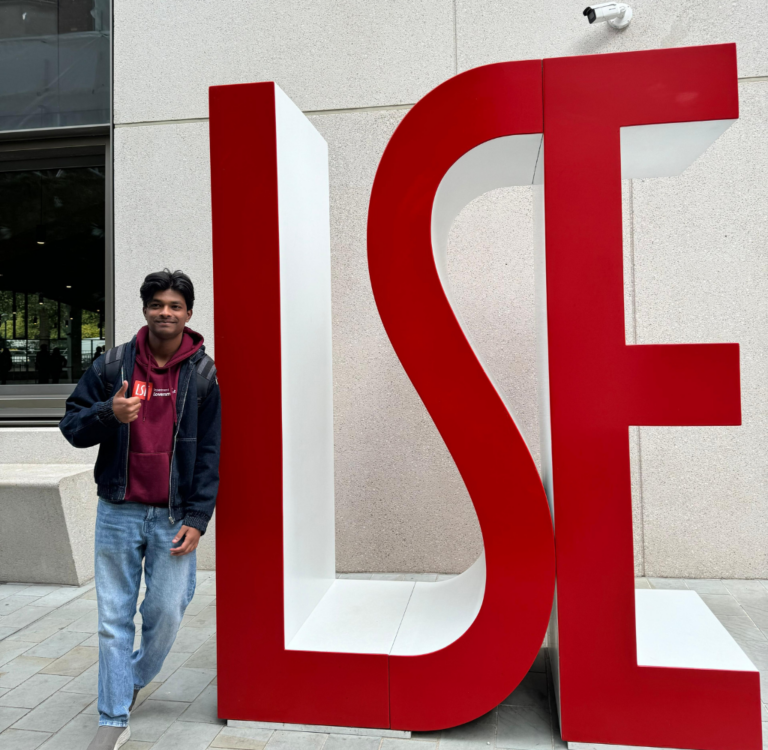
What would you do if you couldn’t get into your dream university?
Would you accept an offer from another school, even if you just know it wouldn’t work out well? Or would you take a gap year so you can reapply to the same university, with no certainty that you would be admitted in the following year?
For Arjun Rajan, this tough decision became a turning point in his life
Born in Coimbatore, India, Rajan attended Manchester International School, the city’s first International Baccalaureate (IB) continuum school, which offers a full range of IB programmes for students aged three to 19.
In Grade 9, his first year of high school, he got to choose his stream and decided on economics.
Curious about the best universities for economics, his search led him to the London School of Economics and Political Science (LSE), a university that was named “The University of the Year 2025” by The Times University Guide and ranked seventh in the world for Economics by QS World University Rankings by Subject 2024.
And just like that, the name stuck in his mind.
“If you asked me in Grade 9 what I wanted to do, I’d say it was going to LSE,” he says.
To do so, Rajan needed to score sevens across the board in the subjects of Computer Science, Economics, and Math for his IB exam — the highest possible score in the IB programme as students are graded on a scale of one to seven.
He got the first two with no problem but came up short with his Math results by just three marks, ultimately bringing his total score to a six instead of the much-needed seven in the subject.
The disappointment hit hard — doubling when LSE sent the dreaded email: Rajan had missed the mark and would not be offered a place in the BSc in Economics programme at the university’s lauded halls.
It was a crushing blow for Rajan to hold a conditional offer to the one and only university he wanted to go to — only to have it snatched away by one point.
For those unfamiliar with the UK university application process, UCAS — UK’s premier Universities and Colleges Admissions Service — has a conditional offer system which allows universities to grant admission based on specific academic requirements; if a student fails to meet those requirements, as Rajan did, the offer can be revoked.
“For context on how much studying at LSE meant to me, just know that I’ve had a framed collage of things that I loved in my living room since I was 16,” he says. “And at the centre of it is an image of the Sir Arthur Lewis building.”

Rajan first discovered LSE in Grade 9 while googling top economics universities, and the name stayed with him ever since. Source: Arjun Rajan
How to make the most out of a gap year
Feeling like he had hit rock bottom, Rajan was left with two choices: settle for a well-ranked university that didn’t excite him or take a gap year so he could apply to LSE again.
“But the latter meant facing extreme uncertainty, grappling with the fear of missing out while everyone around me went off to university, and having to explain to people that I could have gone to university but ‘chose’ to stay at home,” he says. “Worst of all was the fear that I would be ‘wasting’ an entire year of my life.”
Rajan did have alternative options — great options, in fact, which included the University of California, San Diego (UCSD), the University of Glasgow and the University of Toronto, all of whom rank in the top 100 of QS World University Rankings 2025.
But to Rajan, it had to be LSE and nothing else.
“If my grades had been lower, I might have thought, ‘OK, I could go to UCSD or Toronto,” he says. “But my grades were good, and I knew I had a strong chance of getting into top universities again.”
With the love and support of his family and friends, Rajan decided to take a gap year.
And it turned out to be the best decision of his life.
“When I first mentioned it, my parents were a bit confused about what it meant,” he says. “But once I explained that I could reapply after a year, they were all supportive. I think my mom was even happier than I was because it meant more time together as a family.”
During his gap year, Rajan learned to code, spent days playing video games with his brother, solo travelled for the first time in his life, and even embarked on two “extremely rewarding internships in two vastly different industries.”
Beyond that, he found a new interest in politics too — a discovery that would lead him to pursue LSE’s BSc in Politics and Economics programme instead of just the BSc in Economics degree.
Upon his second application, Rajan earned his spot in LSE.
We caught up with him to learn more about his gap year and his path to his dream university.

During his gap year, Rajan had a clear plan for the first few months — enrolling in courses and exploring his various interests. Source: Arjun Rajan
What study habits and techniques helped you excel academically at the school?
When people see good grades and top universities, they might think that the only way to achieve this is by studying from early morning until late at night or studying every day. The truth is in my entire time in the IB, I never pulled any late-night hours or all-nighters.
What I believe in is balance.
I spent time with my family, watched movies, played video games with my brother, and went out to the theatres. Having enough time for my life outside of academics is what helped me do well in my studies.
When I study or when I’m in class, I give my 100%. I listen actively and try to absorb the knowledge.
One technique that I often tell my friends is active recall.
During class, I listen to all the information; I don’t make notes, I just try to absorb it. When I want to revise something, rather than going through the book or my notes, I tend to recall all the information I learned. I ask myself questions like, “What does this formula mean?” or “What was this supposed to do?”
By trying to recall this information, I strengthen my understanding. I never just memorise things. You don’t need to study for 10 hours; if you study properly for just 2 hours, I think you should be fine.
That’s what I did, and that’s what I would recommend to most people even now.
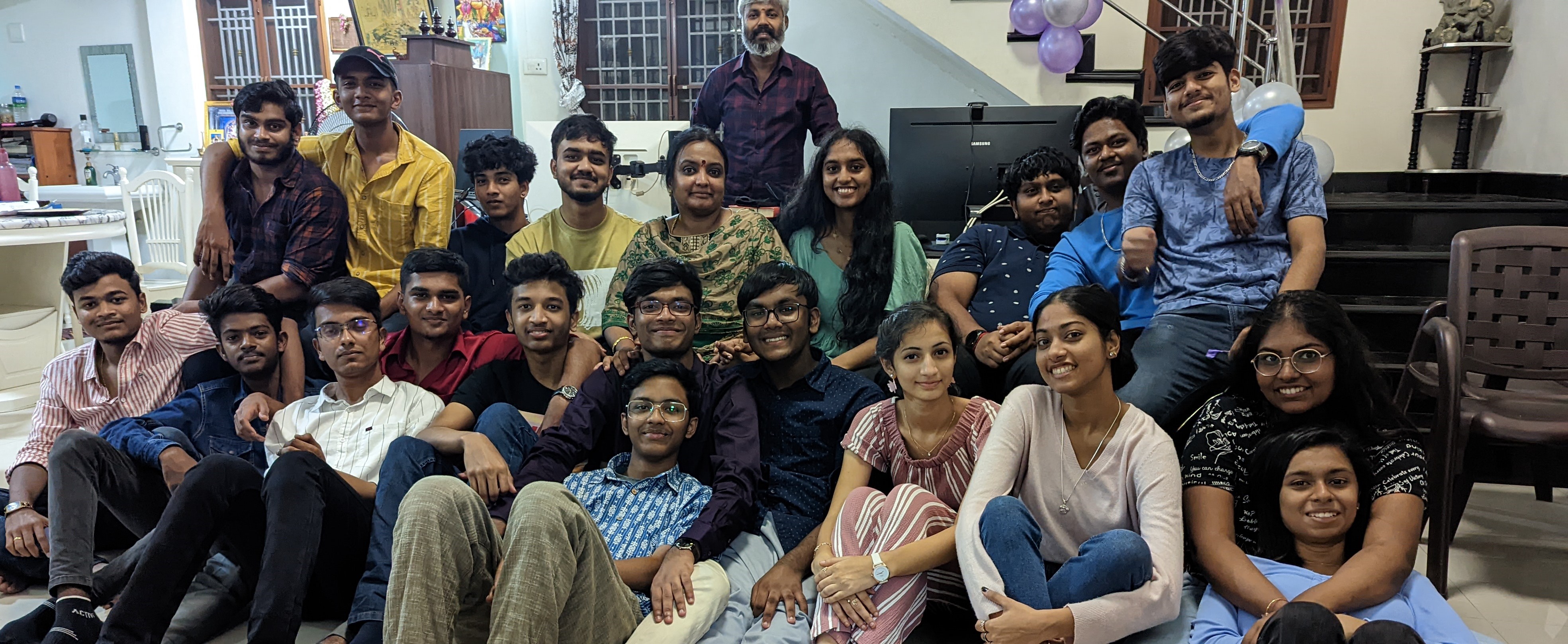
In the second half of his gap year, Rajan completed two internships, gained solo travel experience, spent quality time with family and friends, and enjoyed various fun activities. Source: Arjun Rajan
You took a gap year after missing out on LSE. What did you get up to during this period?
The decision to take a gap year came quite late for me; most people had their plans figured out much earlier. I made my decision in September, knowing I needed to reapply to LSE. I also wanted to explore some of my interests.
I’ve always found politics intriguing, but I had never studied it formally. So, I enrolled in several online courses related to politics, including one from the University of Oxford on edX and a few on Coursera. These courses covered various topics, such as developmental politics and moral politics, and I found them engaging. It became clear to me that I would love to study politics.
After exploring my interests for the first few months, I shifted my focus to crafting my personal statement for LSE. Since I had a solid background in economics, I needed to demonstrate a genuine interest in politics. This involved participating in competitions, reading extensively, and completing online courses.
In the second half of my gap year, I completed two internships, which added valuable experience to my resume.
I also had my first solo travel experience, spent quality time with family and friends, and enjoyed a lot of fun activities. Additionally, I went back to my school to help some juniors with their Theory of Knowledge. Since I had scored well in that subject, the school invited me back to conduct sessions and share tips on improving their understanding.
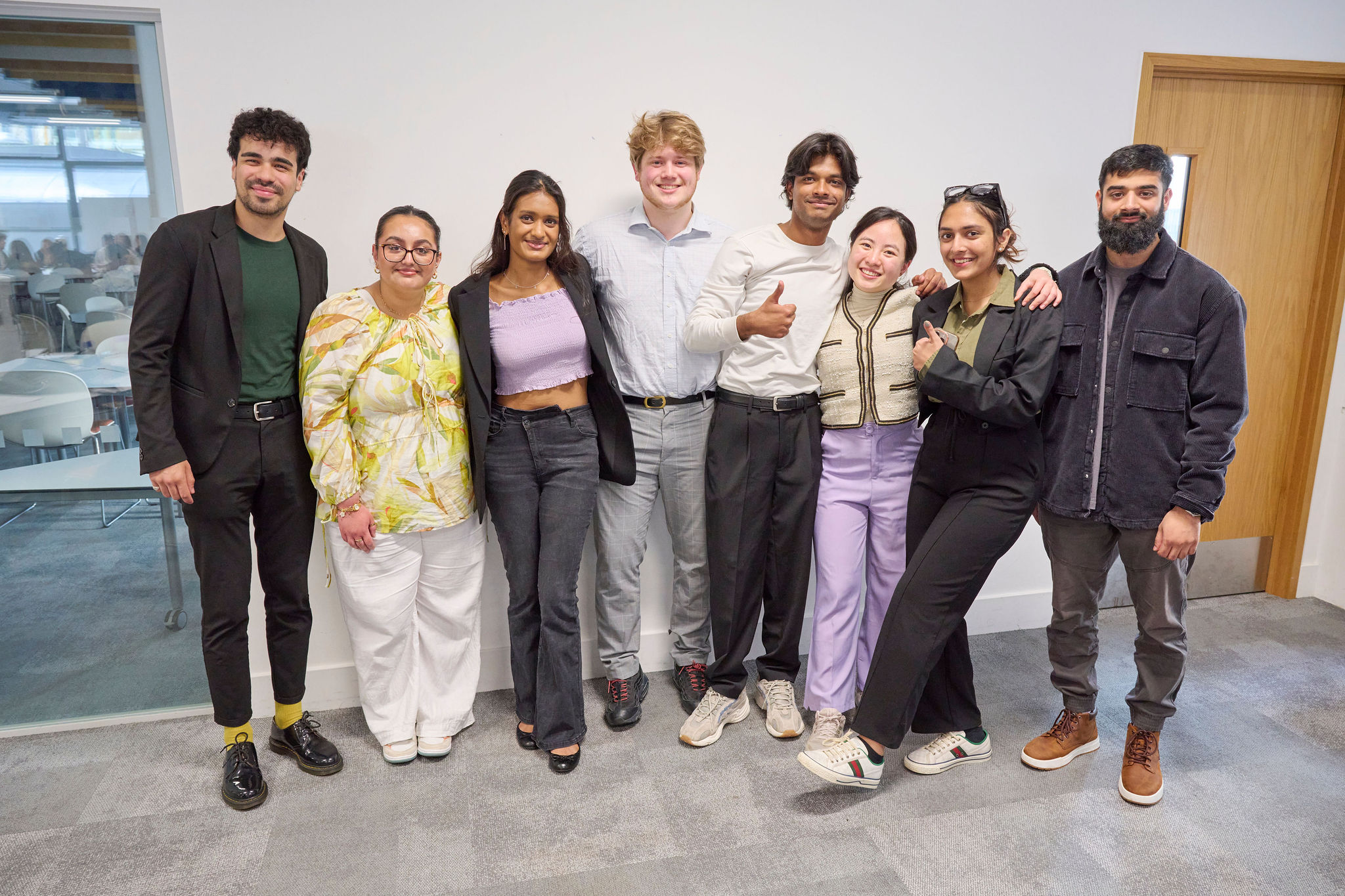
Rajan believes that if he had entered LSE a year earlier, without the opportunity to reflect and learn during his gap year, he wouldn’t have performed as well as he does now. Source: Arjun Rajan
In what ways did your family and friends support you during your gap year, and how did their support impact your decision to reapply to LSE?
I think it’s important to highlight that my family’s unwavering belief in my decisions played a crucial role in my journey.
They never questioned whether I was making the right choice; instead, they trusted my research and the systematic approach I took in presenting my plans. This trust made a significant difference, allowing me to feel confident in my path without the nagging worry of wasting my time.
My family ensured that I was always engaged and never felt like I was just sitting at home. Whether it was watching movies together or discussing books, they kept me connected and involved.
My friends also contributed to this support system. They consistently updated me on their university experiences, making me feel included rather than left behind. I even had the opportunity to assist some of my friends with their university assignments, which kept me engaged and motivated.
What preparations did you make when reapplying to LSE to make yourself stand out more?
During my gap year, I shifted my focus to a course that aligned better with my interests and already met the requirements, which simplified my preparation in terms of grades.
However, the real challenge was crafting a personal statement that clearly demonstrated my passion for politics. I wanted to ensure that it didn’t come across as if I was applying to Politics simply because I didn’t get into Economics.
I truly rediscovered my love for politics during this time, and I needed to convey that enthusiasm in my 600-word statement. My preparation in the first three to four months involved engaging in various experiences, taking courses, and immersing myself in the subject matter.
The challenge lay in translating my newfound passion into compelling writing, ensuring it felt genuine and sincere. Additionally, I had to brush up on some math skills as well, but most of my focus during the latter part of my gap year was dedicated to showcasing my commitment to studying Politics at LSE.

Rajan has a younger brother who is also taking a gap year this year after finishing school. He plans to come to LSE as well. Source: Arjun Rajan
You’re now pursuing a BSc in Politics and Economics at LSE. How do you view the gap year in retrospect?
I firmly believe that if I hadn’t taken my gap year, I wouldn’t be the person I am today or the student I’ve become at LSE. I wouldn’t change a thing about my journey.
I believe more people should consider taking gap years and trying different things. If I had entered LSE a year earlier without the chance to reflect and learn during my gap year, I don’t think I would have performed as well as I do now. This past year has made me more responsible, mindful, and emotionally mature.
Transitioning to university can be challenging — especially being away from home and adjusting to a new country. My gap year provided me with invaluable experiences, such as travelling alone, which I never thought I would do. These experiences have better prepared me to embrace university life.
While I wouldn’t say a gap year is necessary for everyone, it certainly helped me grow and positioned me for success at LSE. In retrospect, it was one of the best decisions I could have made.








